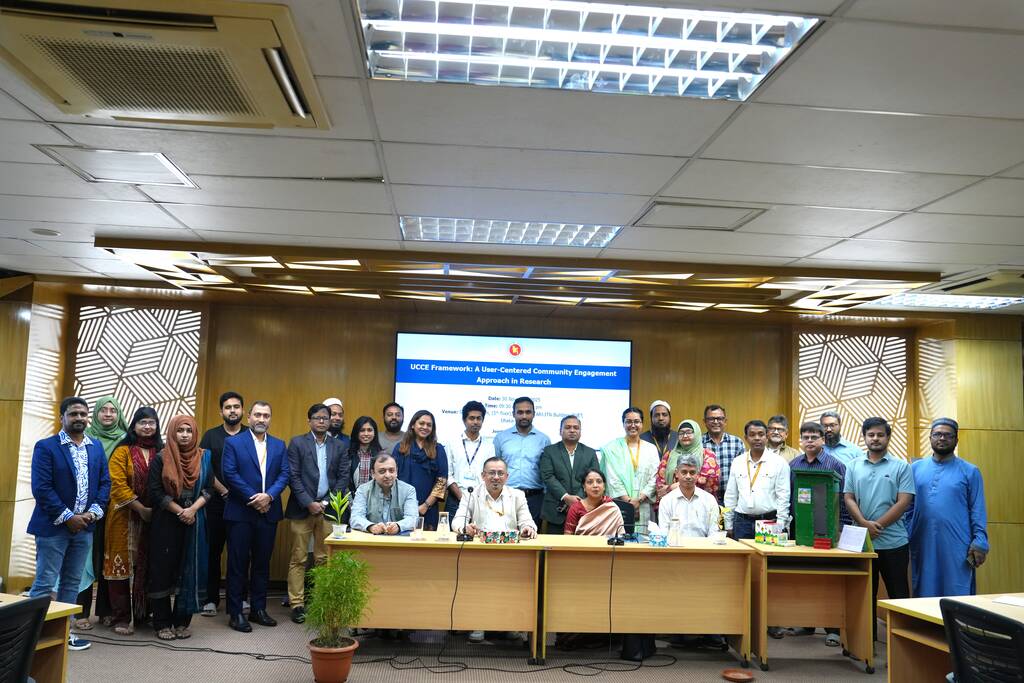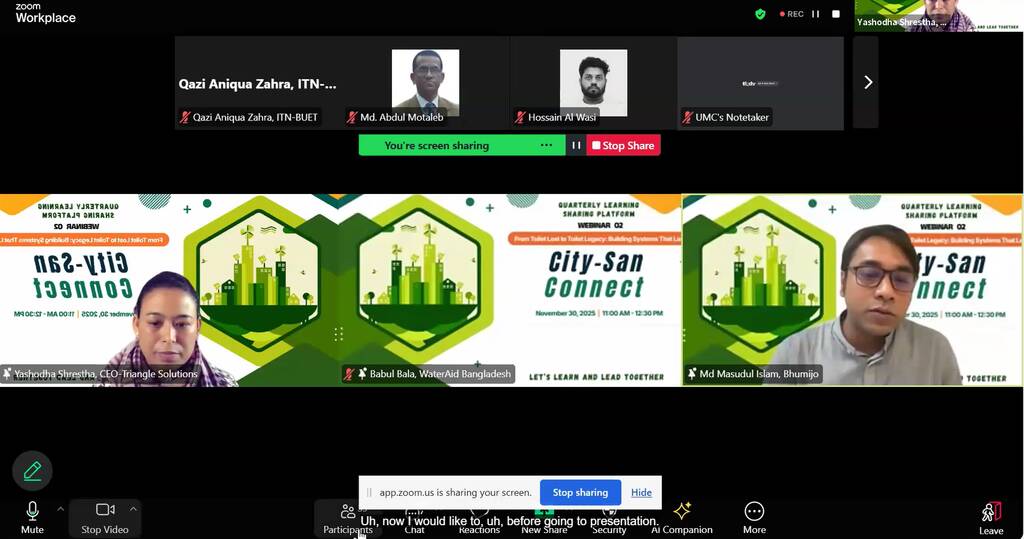Recognizing the critical role of sustainable service and business models in Fecal sludge management (FSM), ITN-BUET, in partnership with the CWIS-FSM Support Cell, DPHE, organized a two-day long training for municipal officials on 3-4 November 2024. The training, held at the seminar room of ITN-BUET, aimed to equip municipality personnel with essential knowledge and skills to implement and sustain FSM services.
Officials from ten cities participated in the training. The cities were Cumilla City Corporation, Jamalpur, Shariatpur, Narsingdi, Bagerhat, Sirajganj, Pabna, Patuakhali, Lakshmipur, Natore, and Sirajganj participated in the training. Among the 20 participants, the profile included Pauro Nirbahi officers, executive engineers, sub-assistant engineers, account officers, and conservancy inspectors, reflecting a diverse and skilled group committed to enhancing FSM practices in their regions.
The training program was designed based on “Training Manual on Service and Business Models for Sustainable FSM in Municipalities,” jointly developed by ITN-BUET and the CWIS-FSM Support Cell, DPHE. These manuals address immediate challenges and promote long-term sustainability, guiding officials in establishing viable FSM models suited to their unique infrastructure and local needs.
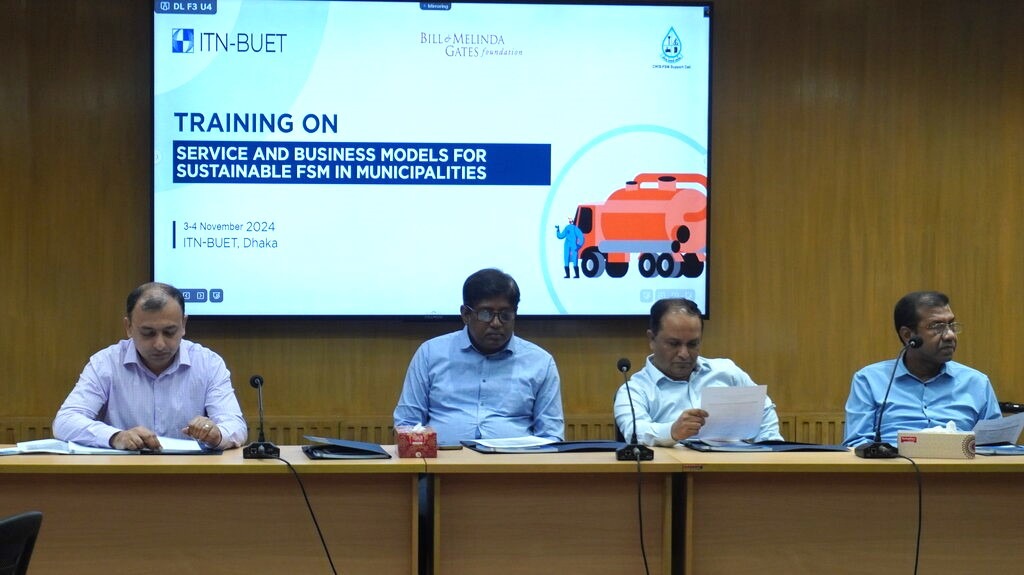
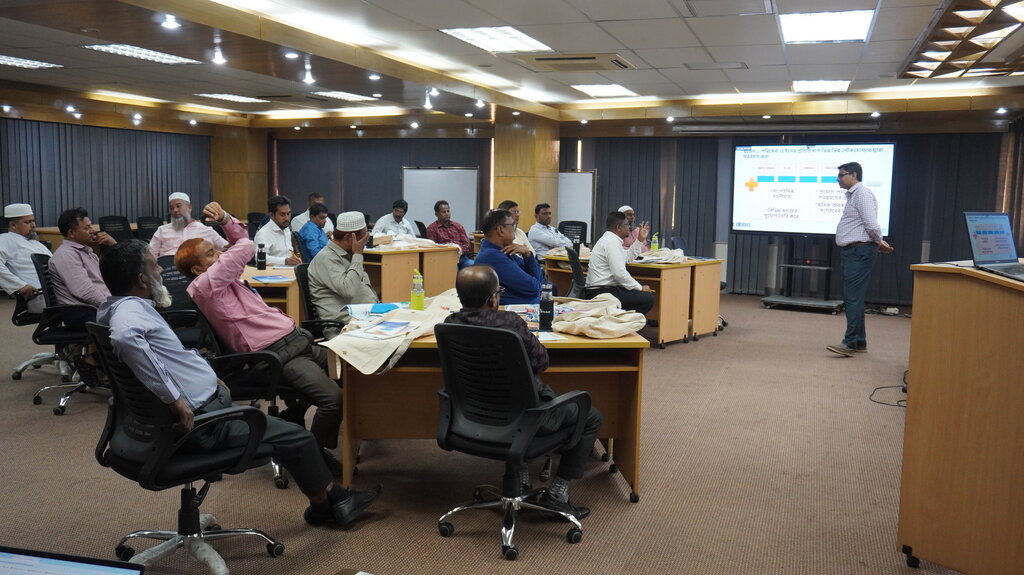
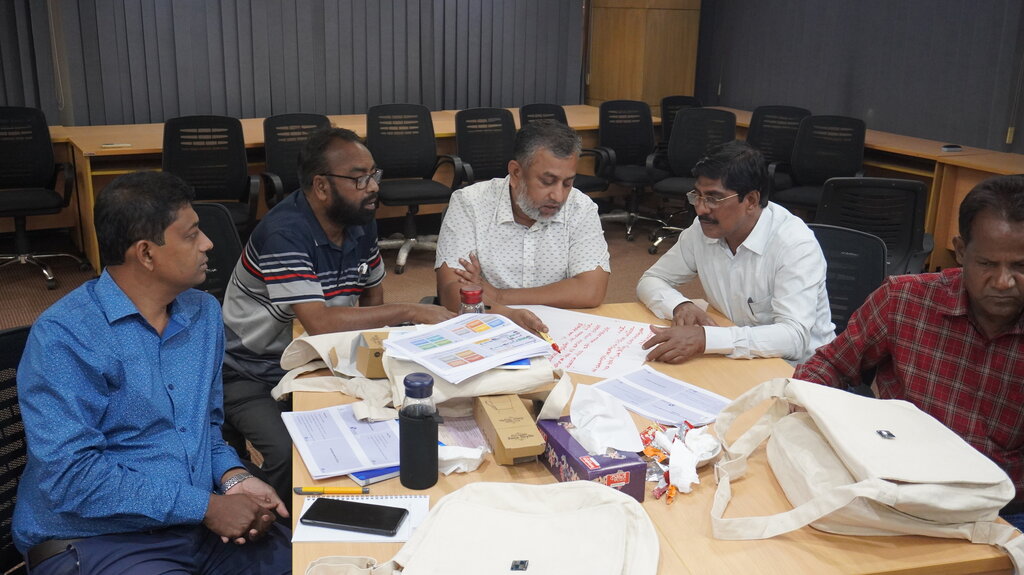
In the inaugural ceremony, Additional Chief Engineer (Planning) of DPHE, Mr. Eheteshamul Russel Khan, highlighted that the ultimate goal of the training is to achieve a sustainable FSM system. He noted that many FSM initiatives fail due to absence of proper business models, leaving communities without dependable services. He emphasized that this training is essential for preparing municipal personnel to implement effective service models and share knowledge with their communities.
Dr. Tanvir Ahmed, Director of ITN-BUET, underscored the need for sustainable FSM service and business models, highlighting that without sustainability, service quality may decrease which reduces long-term impact and effectiveness. He explained that the training focuses on field-based financial management, service and business models, and revenue-generating strategies, empowering municipalities to select approaches best suited to their infrastructure.
Special guests Mr. S.M. Shamim Ahmed, Project Director of the Inclusive and Integrated Sanitation & Hygiene Project in Bangladesh, and Dr. Abdullah Al-Muyeed, Chief Operating Officer of the CWIS-FSM Support Cell emphasized the importance of organized, revenue-generating WASH services and noted that this training marks an initial step for municipalities to develop structured sanitation services. The transfer of FSM infrastructure and services from the DPHE to municipalities demands trained staff to manage the operations properly. This training will help them effectively handle operations, ensuring both revenue generation and sustainability. Md Habibur Rahman, WASH Specialist from the Islamic Development Bank (IsDB), added that selecting appropriate service and business models is vital to avoid operational challenges. He noted that this training would help municipalities apply sustainable models to benefit communities in the long term.
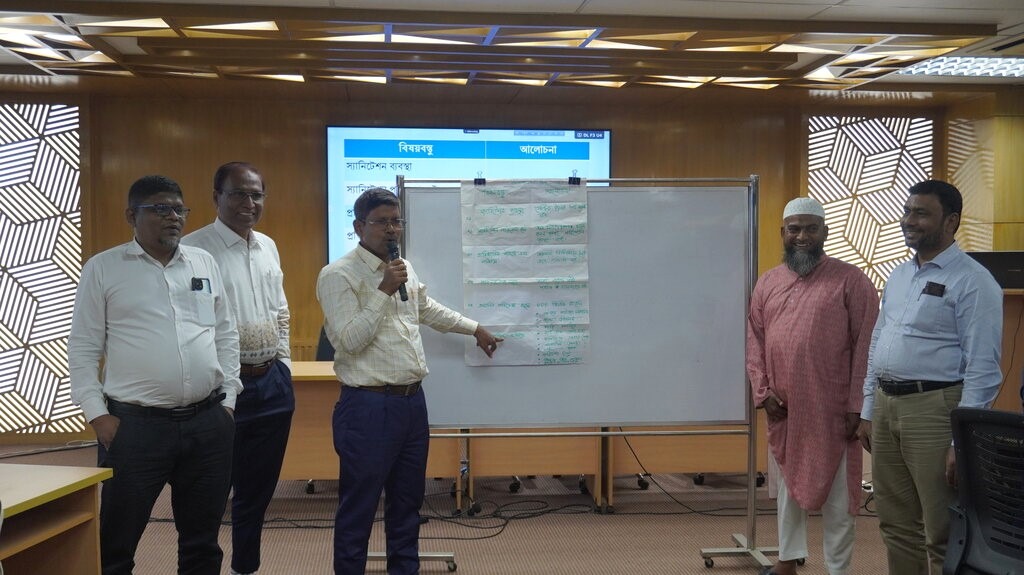
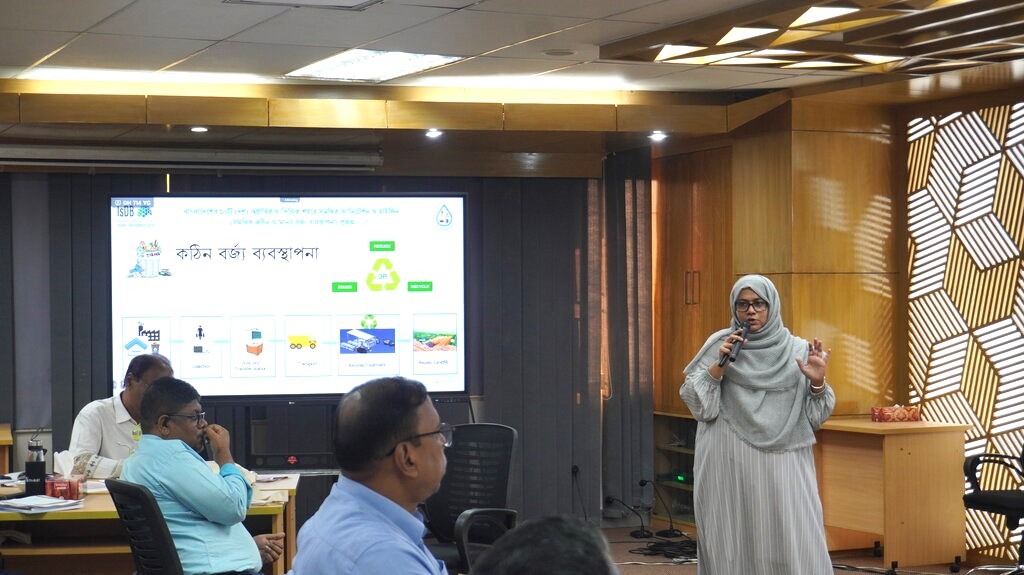
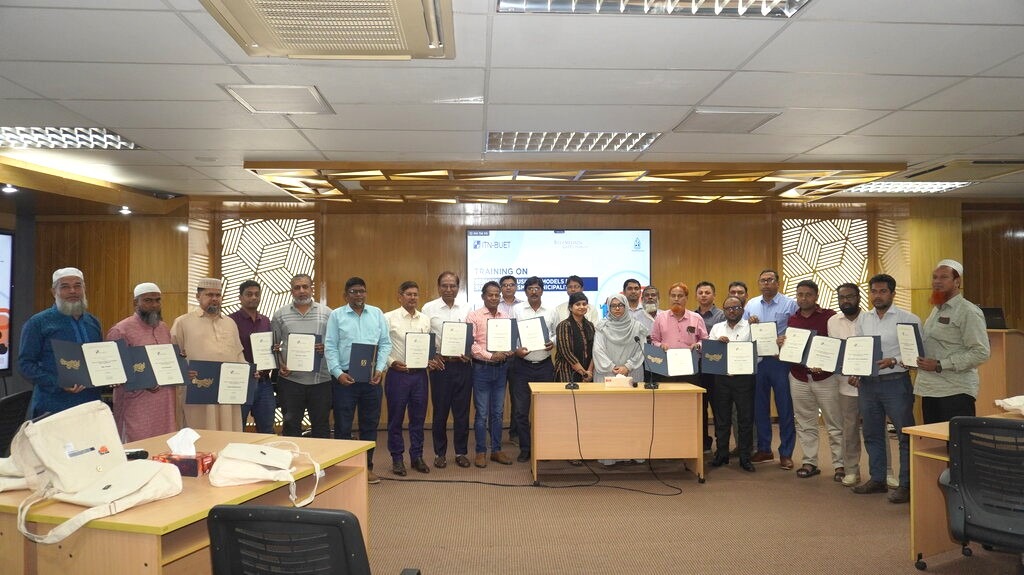
The training’s key resource persons included Mr. Sanjoy Mukherjee, Social Development Expert, CWIS-FSM Support Cell; Mr. Monzur Morshed, Business Expert, CWIS-FSM Support Cell; Mr. Adil Hassan, Chief Operating Officer, Streams Tech Ltd. and Mr. Subrata Paul, Training Specialist, ITN-BUET.
The training combined theory with real-world insights, giving participants a thorough understanding of sustainable FSM services and business models. With the skills to assess the different needs and challenges of various groups, municipal officials are ready to implement effective and sustainable FSM solutions in their municipalities. This knowledge will help them improve current service delivery for FSM, ultimately enhancing sanitation services in urban areas of Bangladesh.



